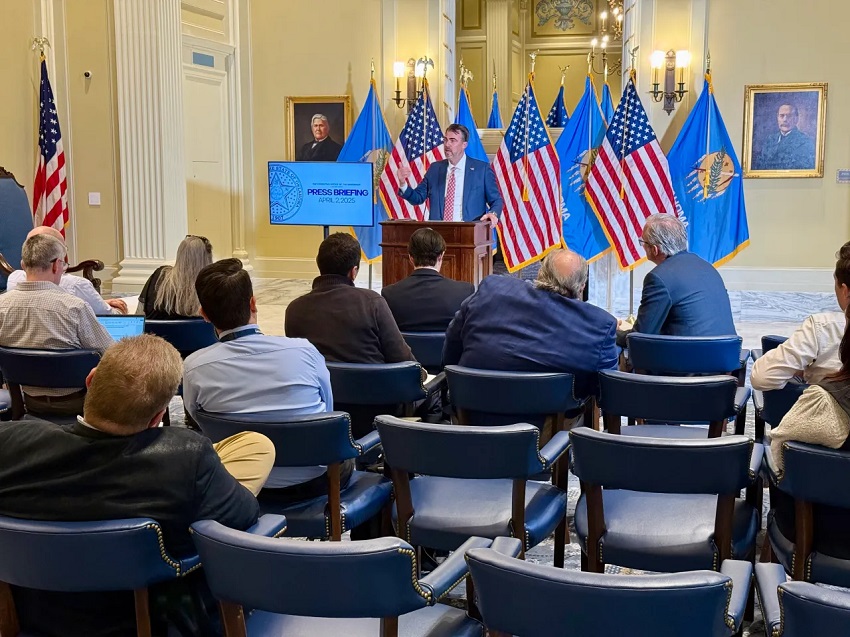OKLAHOMA CITY, OK — With just days remaining before the Oklahoma legislative session adjourns on May 30, lawmakers are weighing possible overrides of Governor Kevin Stitt’s unprecedented wave of vetoes. The governor has rejected 49 bills this session, nearly doubling last year’s total of 26 and prompting bipartisan frustration within the Capitol.
Senate President Pro Tem Lonnie Paxton (R-Tuttle) confirmed that discussions are already underway with legislators whose bills were vetoed. He and House Speaker Charles McCall plan to meet with Governor Stitt to discuss the possibility of reversing some of the decisions before the session concludes.
“Just out of that, as a professional courtesy, [I will] let him know what we are considering,” said Paxton.
Among the most contentious vetoes is House Bill 1389, a measure that would have required insurance companies to cover additional mammogram-related screenings. The bill, which passed unanimously in the House, was authored by Rep. Melissa Provenzano (D-Tulsa), who recently revealed a personal breast cancer diagnosis. The legislation aimed to reduce the financial burden of follow-up scans for patients at risk.
“We’ve heard from lots of constituents who need those kinds of scans that the insurance has been making them pay cash for,” said Sen. Julia Kirt (D-Oklahoma City), a supporter of the bill. “We want to make sure people get that scan if they need it.”
In his veto message, Stitt argued that the bill imposed “new and costly insurance mandates” that would ultimately lead to higher premiums.
House Minority Leader Cyndi Munson (D-Oklahoma City) said HB 1389 is a top priority for Democrats and a prime candidate for a veto override.
Another bill under consideration for reversal is House Bill 1137, which would provide direct state funding for the Oklahoma State Bureau of Investigation’s Missing and Murdered Indigenous Persons (MMIP) unit. The bill garnered broad support from both Republican and Democratic lawmakers, law enforcement, and tribal nations.
Governor Stitt, however, vetoed the bill, stating that “every missing person – regardless of race or background – deserves equal attention and urgency,” suggesting the measure created racial preferences in state policy.
Lawmakers also expressed strong disapproval of Stitt’s veto of House Bill 2048, which would have expanded pharmacy access for rural hospitals and health centers. Supporters say the bill was crucial for providing affordable care to low-income and uninsured Oklahomans.
In a joint statement, Sen. Brent Howard (R-Altus) and Rep. Preston Stinson (R-Edmond) accused pharmaceutical lobbyists and outside interests of influencing the governor’s decision.
“Out-of-state and foreign drug companies and the dark money interests working for them successfully derailed the most important legislation introduced this year to help the health care providers who serve our most vulnerable communities,” they wrote.
If lawmakers pursue overrides, they must do so before the legislative session ends on Thursday. Overriding a veto in Oklahoma requires a two-thirds majority vote in both the House and Senate. With several bills enjoying broad bipartisan support, the final days of the session could see a rare and dramatic series of veto reversals.

